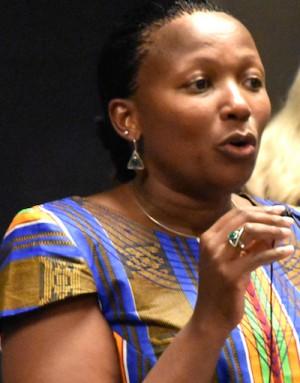
by Angela Mutunga, Advance Family Planning East Africa Regional Advisor. Originally posted on Impatient Optimists. Adapted from a presentation at the “Accelerating Access to Postpartum Family Planning in Sub-Saharan Africa and Asia” held in Chiang Mai, Thailand, June 8-11, 2015.
When I was 16 years old, my mother suffered a retained placenta that I manually removed when everyone had despaired and left her for dead. When life seemed to return, I rushed my mother to a health center. We camped for a week while she received care. At no time was she counseled on family planning or offered any contraceptive method.
My mother had nine children all born at home with the assistance of a traditional birth attendant. After each birth I heard her wish not to become pregnant again. This is the same wish that researchers report when they interview women across the developing world.
Despite this wish, within three months’ time, my mother became pregnant again. My baby sister died soon after her birth as my mom was too weak and sick as a result of becoming pregnant again so soon.
Around the same time, two classmates died of abortion complications. In both cases they did not use contraception and became pregnant too soon after having their first baby.
We know that my stories are still common in Africa and Asia today. What do we need to do to help them prevent unwanted pregnancy and protect their wellbeing and health?
-
Information to make the right decision at the right time – We need to meet women where they are now with low-literacy informational packs, translated in the local language. Women and adolescents often do not want another pregnancy soon after delivery, yet in many facilities or at home, no one offers them information on what to do.
-
Innovate to take services as close to the women as possible—if not to their doorsteps. We need to focus as much on those who give birth at home as those who do so in a facility. We have seen campaigns to End Polio and increase immunization do this, why not try family planning?
-
Support health providers’ efforts to provide post-partum family planning. It’s not just about increasing numbers of health workers but having those in service be helped to re-imagine, refocus, recommit. Why do they miss the opportunity to counsel those women who deliver at their facilities? What barriers can we eliminate? How can we better support health systems for both providers and users?
-
Expand women’s choices. We need to prioritize having an expanded contraceptive method mix ready for those who visit the health facilities. Pushing the only available methods to women and not what they want further brews myths around family planning. Many women also have concerns about contraceptives, especially side effects, which often go unaddressed. Increasing their options allows women and girls to find the method that is right for them.
-
Target men as partners in reproductive health. Women need support for family planning overall. They especially need it soon after delivery when their worries totally shift – from surviving pregnancy to taking care of a baby. Many men are fully invested in seeing that their wives and children not only survive, but thrive. We need to take advantage of their desires to protect the health and lives of their partners and children.
-
Finally, provide adolescents with reproductive precautionary education. If my fellow adolescents at the time had access to information and/or were offered post-partum family planning, their deaths would most likely have been avoided. Investing in young people’s knowledge saves their lives.
Access to this knowledge enabled me to choose a different path for myself—and allowed me to help my mother. Three months after graduated from my high school, I worked in neighbors’ homes, earned some bus fare and took my mother for sterilization at a Marie Stopes clinic.
No woman should die bringing life into the world. Let’s accelerate access to family planning alongside other services after the birth of a baby.
Thank you to my mother, Susan. It is her story that inspires me to make the needs of women, girls and their partners a priority and move beyond words to actions.

